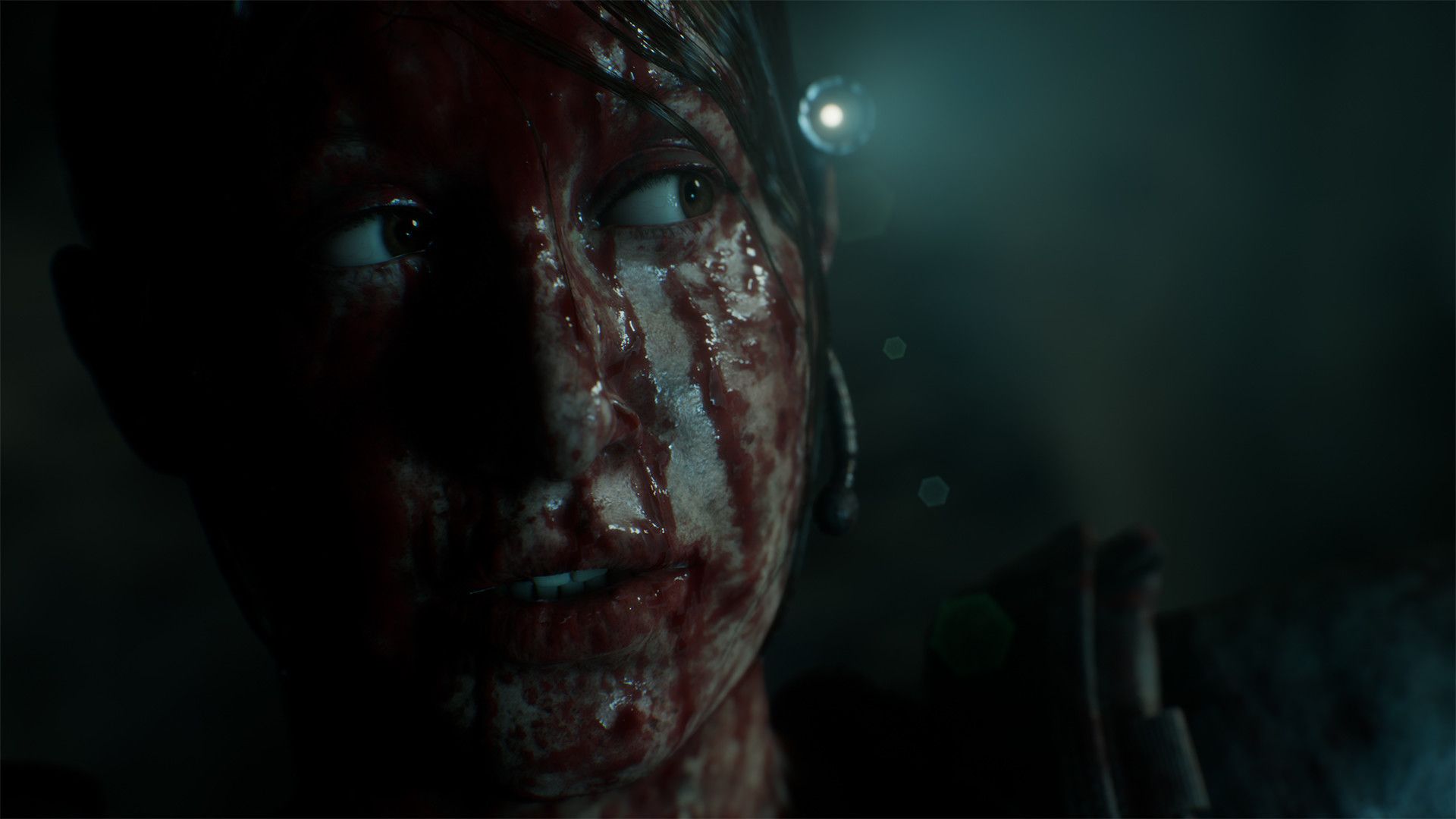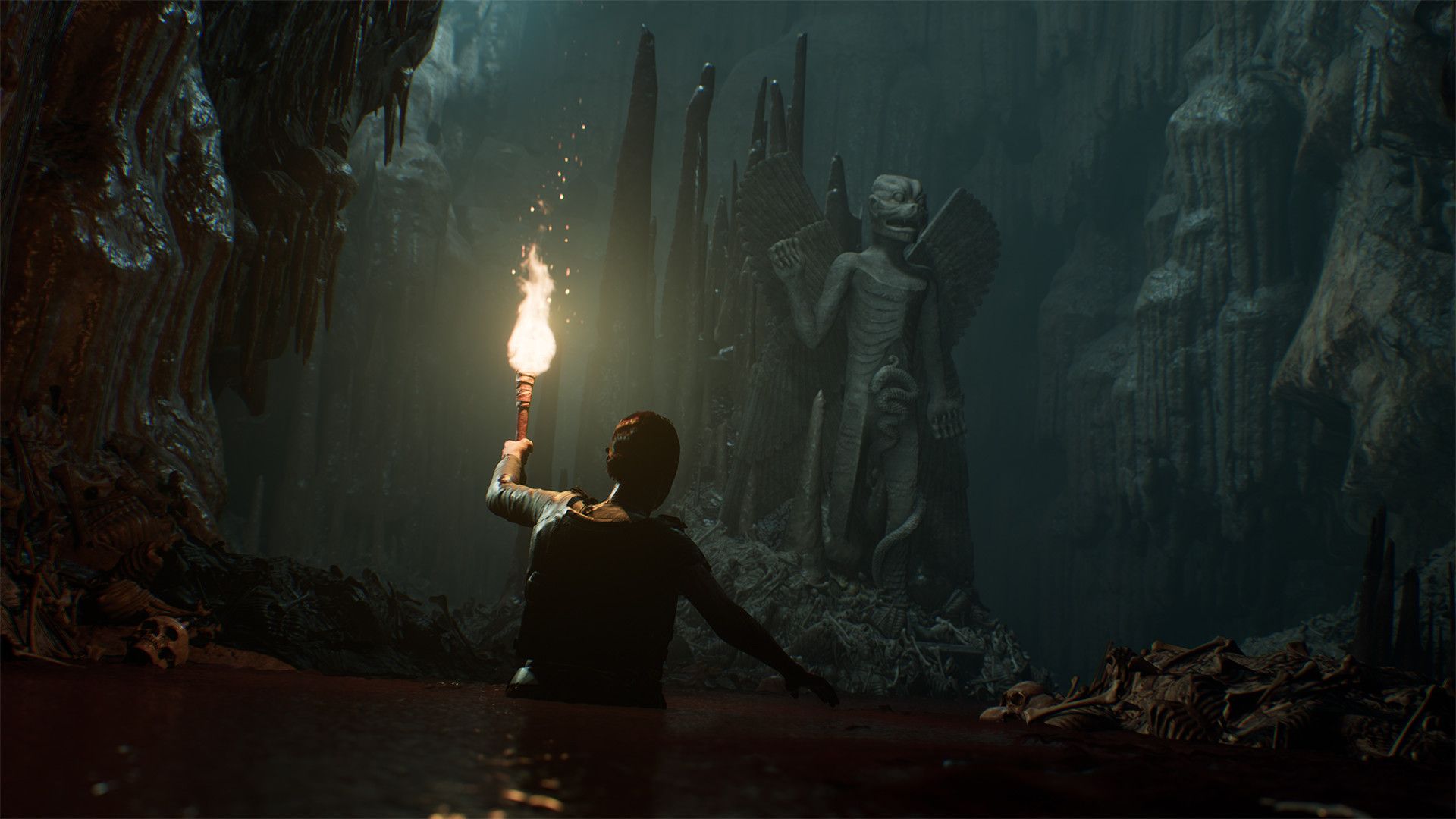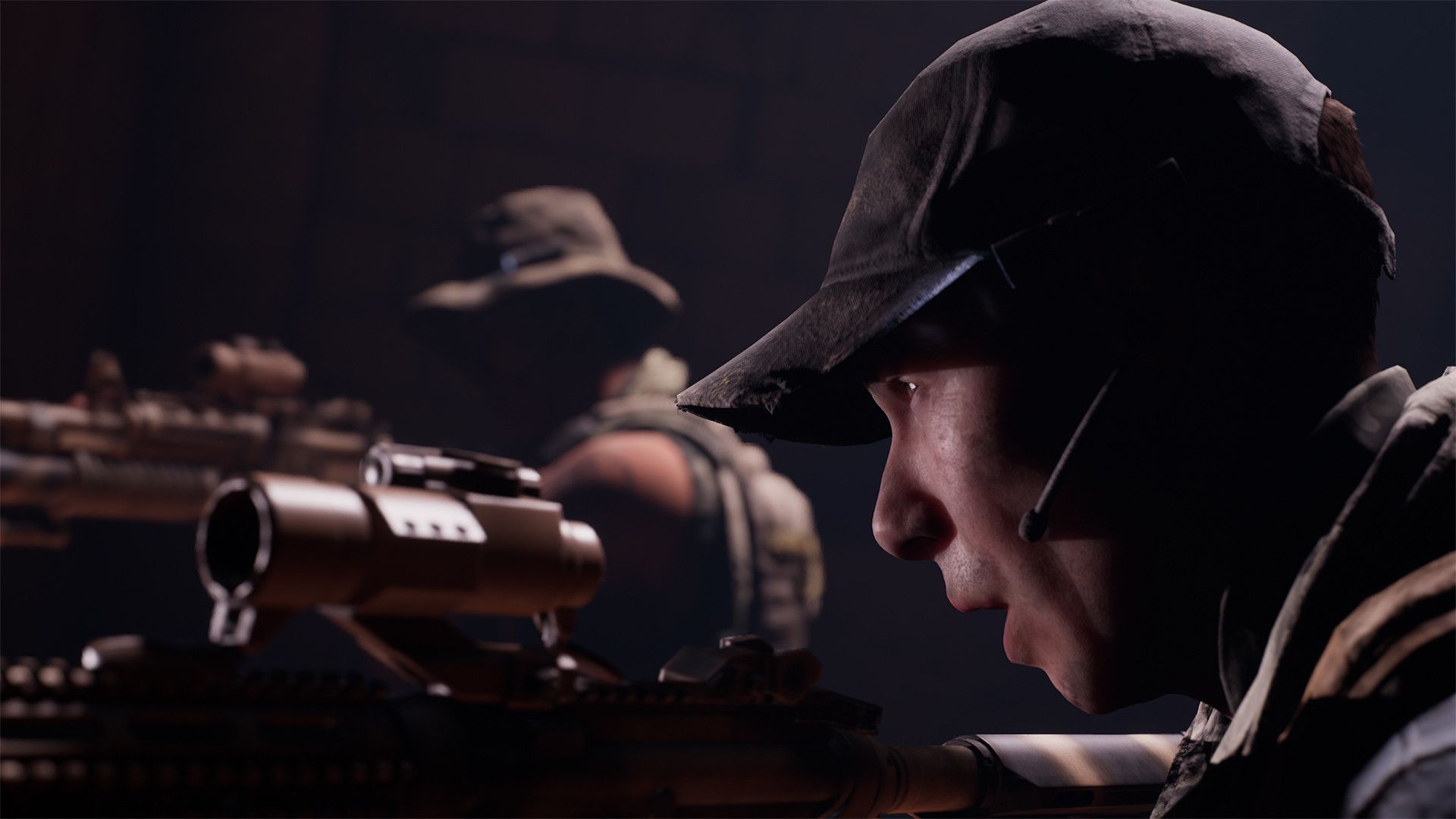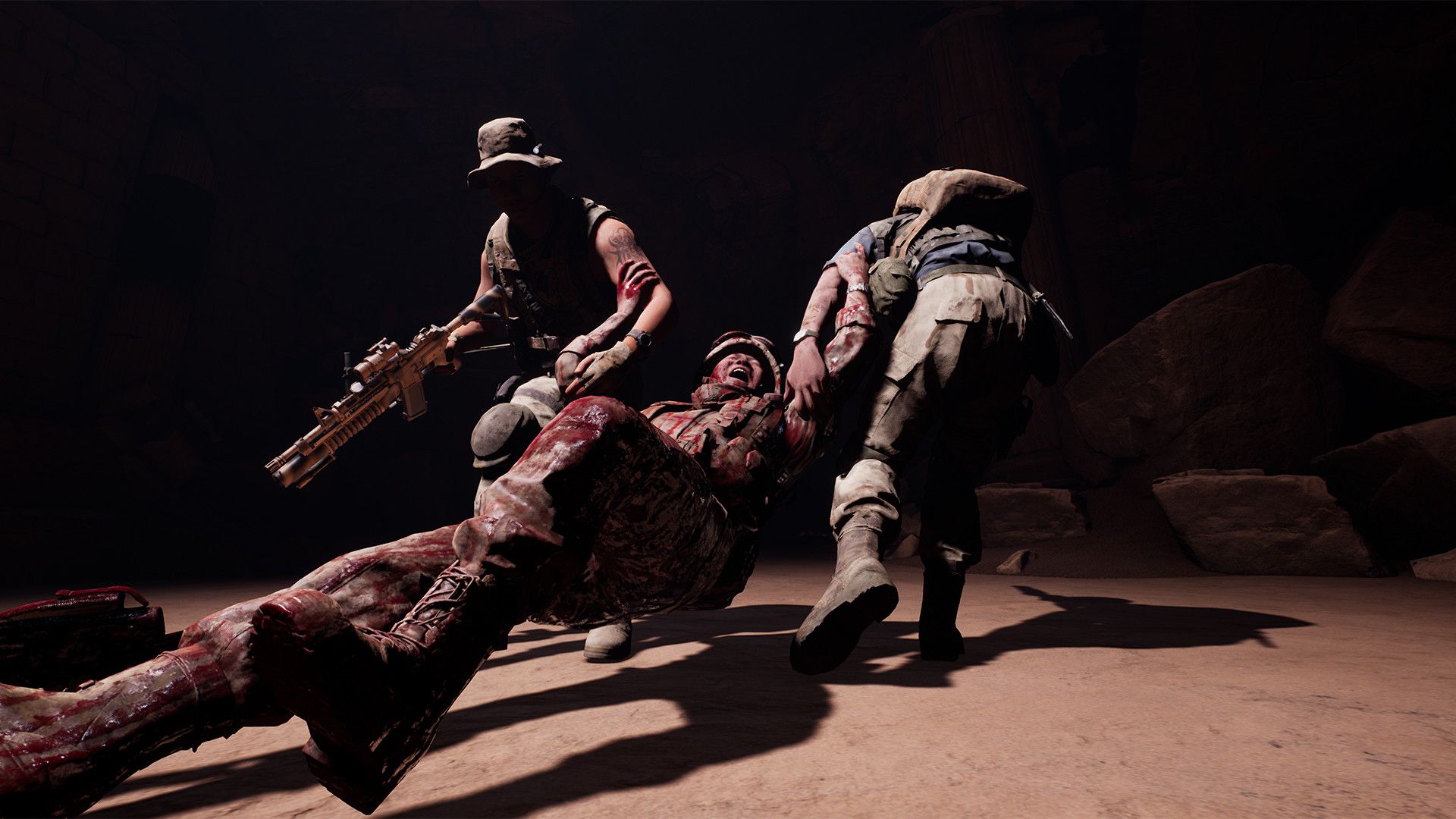Last night I rewatched the original 1992 version of Candyman, a horror movie about a malevolent spirit that haunts Chicago’s Cabrini Green housing project. In life, The Candyman was the son of a slave who was tortured and murdered for falling in love with the daughter of a wealthy white man. The film’s director, Bernard Rose, faced criticism before the film’s release from some who worried about its depiction of race and the decision to cast a Black man as a monster. But Rose’s film does not simply use the projects as a playground for just another teen slasher flick. Rather, Candyman tackles the socio-economic conditions of Black Americans and its connection to the country’s racist past head on. Like all good horror, Candyman is a reflection of widely shared cultural fears, but it's the way it critiques the source of those fears that makes Candyman such an enduring classic.
Candyman was certainly on my mind as I played through a preview build of House of Ashes, the latest instalment in Supermassive Games' Dark Pictures Anthology. House of Ashes takes place during the invasion of Iraq in 2003 and follows a group of American Special Forces hunting for weapons of mass destruction. War-themed games set in the Middle East are often criticized for perpetuating anti-Arab sentiments with bad representation and dehumanizing tropes. The setting of House of Ashes gives me the same negative gut reaction that I imagine a lot of people had in 1992 when they first heard about Candyman. Will House of Ashes be othering towards Arabs and play into stereotypes as so many games have before it, or does its story use the Iraq War as something more than a playground for jump scares? It’s not that I expect it to live up to some kind of bar set by other, unrelated horror stories, but it certainly has to do a hell of a lot more to justify its setting than Little Hope or Man of Medan did. Witch trials and ghost ships are pretty safe avenues, but the Iraq War is anything but.
Whether House of Ashes will use its monsters to say something more is unclear from the build I played, but there are a few hints that suggest it will at least tell a more responsible story about war than your typical glorified military shooter. My playthrough begins with a protracted cutscene that skips the actual introduction but still provides at least some idea of how the characters end up trapped in an ancient Sumerian temple deep underground. It starts with a group of soldiers on a mission to find chemical weapons hidden in a small Iraqi village. As they enter a house to interrogate the villagers, one of the soldiers announces that he’s going to “PSYOPS this shit,” which is a hilarious phrase that can tell you a lot about what kind of soldiers these are. Hoo-rah, etc.
Of course, they find no WMDs here, much like in reality. As soon as they make this discovery, a helicopter appears on the horizon and starts firing rockets at them. In the midst of this firefight, the ground beneath them opens up and the soldiers are swallowed into nothingness. Below, they find themselves lost in the remnants of an expansive temple that happens to be filled with winged, werewolf-like monsters.
There are five playable characters in the preview, though there’s at least one more character in the “party” so there might be more NPCs or people to control later on. The first character is a soldier named Nick who, after running away from several monsters, meets up with Mr. PSYOPS, aka Jason, who tells him they need to escape because the place is “crawling with Iraqis.” On the way, they encounter an injured soldier and end up carrying him along as they flee from creatures stalking them from the shadows.
Salim is another character I encountered in the demo - an Iraqi soldier who will likely develop tensions with the aforementioned dudebro. He also seems to be dazed and confused amidst the subterranean temple, but I only spent about five seconds with this character, so there isn’t much more to say just yet.
The bulk of the preview was spent with Eric and Rachel, a divorced couple that don’t seem to be soldiers at all. I’m sure it’s more clear how they ended up here once you’ve seen the full opening, but right now all I know about them is that Eric would very much like to get back together with Rachel, and for some reason, thinks now is a good time to work out their issues.
House of Ashes plays just like Man of Medan and Little Hope before it, so it’s more of what you loved/hated from the first two games. It uses the same arcane Moral Compass system as before to let your choices steer the story, which I still find confusing. Are you supposed to choose the dialogue options that align with their given personality traits, or try to motivate each of them in a more altruistic and cooperative direction? I still don’t get how the Traits and Bearings work, but luckily, I’m perfectly happy to just make the choices that feel right to me and let things play out. I think these games are more fun if you don’t try to save everyone, so I don’t get too hung up on systems that govern the outcome. That said, I do wish they were a tad less inscrutable.
The monsters are in the spotlight right away this time, which has me hopeful that the plot is poised to go in some unexpected directions. These giant, humanoid bat-wolfs conjure thoughts of Neil Marshall’s The Descent as well as the descendants from Uncharted: Drake’s Fortune. They’re menacing, even considering that all of the characters have automatic weapons this time, but they’re not exactly scary.
Hopefully, there’s a lot more going on here than just a simple Sumerian curse. If the plot follows the same trajectory as the first two games, we can expect a major twist that contextualizes all the game’s events to be the result of something decidedly non-supernatural, but no less outlandish. I don’t have a lot of confidence that Supermassive can or wants to use House of Ashes to provide meaningful commentary about the Iraq War, American Imperialism, or our nationalized fear and hostility towards people in the Middle East, but if it can avoid doing harm and justify the setting (in a way I have yet to see) then I’m hopeful this will be a worthwhile story. I’m a fan of this series, but it remains to be seen whether or not it was better off sticking to safer settings.




